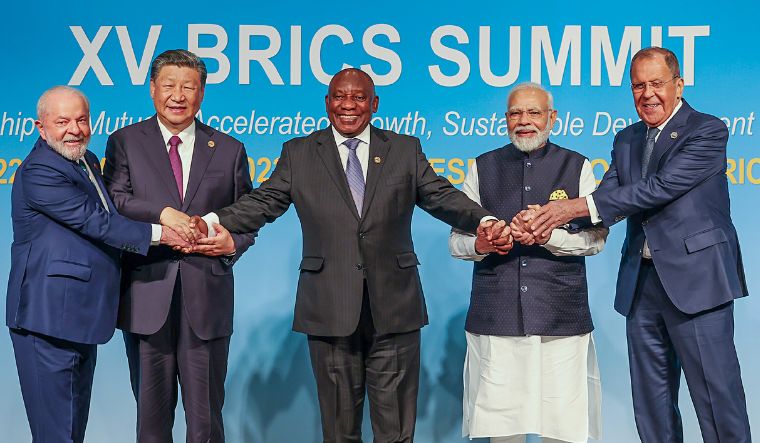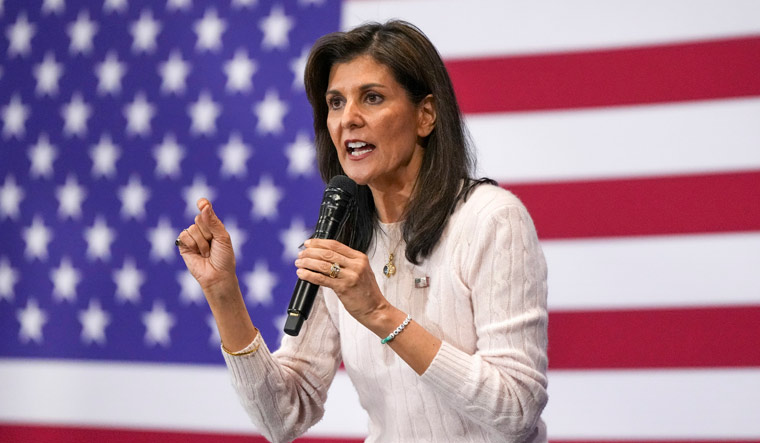
Contemporary after presiding over Brazil’s 201st Independence Day festivities in Brasilia, President Luiz Inácio Lula da Silva promptly boarded a airplane for New Delhi on Thursday, embarking on one other symbolic transition: taking up the 2024 presidency of the highly effective G-20 group of countries as world leaders collect this week.
The back-to-back September 7 occasions underscore the outsized position Lula envisions for Brazil on the world stage. After 4 years of diplomatic dormancy below his right-wing predecessor Jair Bolsonaro, the energetic 78-yr-old returning leftist president is vigorously reasserting Brazil as a distinguished voice in worldwide affairs.
“Brazil is again,” Lula proclaimed in his inaugural deal with on January 1st, telegraphing his intentions. His globe-trotting first months in workplace sign Brazil’s ambitions for affect are not confined to Latin America.
Lula’s abroad journeys have included america, China, Japan, the UK, Portugal, Spain, South Africa, the United Arab Emirates, Angola, and others.
Now, Brazil could have the flexibility to host and coordinate the G-20 annual summit, set the agenda, facilitate discussions, and lead initiatives of the group of 19 international locations and the European Union, representing the world’s main economies.
The high-profile G-20 presidency comes as Brazil works to revitalise the BRICS coalition of main growing nations, of which it controls the presidency of its New Improvement Financial institution, with former Brazilian President Dilma Rousseff at its helm in Shanghai. Analysts say if dealt with adeptly, Brazil’s world management roles might develop its clout because it finds itself at an inflection level, each regionally and on the world stage.
On the historic August BRICS gathering in Johannesburg, 41 growing international locations declared curiosity in becoming a member of what’s now portrayed by Lula as the brand new axis of rising powers. Formal requests for membership confirmed savvy recognition of the rising clout held by the rising economies of the southern hemisphere.
China views BRICS as a car to guide the growing world. India harbors its personal ambitions for prominence. And Brazil gained renewed diplomatic respect from its key position in shaping BRICS’ enlargement.
BRICS isn’t an organisation, so it doesn’t require new members to ratify its values or insurance policies however it’s changing into a platform for growing international locations to entry the worldwide financial freeway that seeks an alternate path to US-dominated pathways.
As such, Brazil influenced the standards for admission amid considerations that an unchecked inflow might result in political ungovernability or financial dominance by China, which accounts for 70 p.c of the bloc’s GDP, even because the group’s complete GDP tops that of the G7, the world’s wealthiest economies.
China and Russia favored quickly increasing BRICS to sign widespread rejection of a “new Chilly Conflict.” India and Brazil urged warning. This motivation helped catalyze BRICS’ uneven economies and geopolitical rivals like China and India.
With Russia in any other case in a bellicose slog and China on a race with itself for world affect, Brazil led a compromise for accepting six new World South nations in 2023, all with shut China ties which have been growing cooperation in numerous fields comparable to commerce, funding, and infrastructure growth.
These international locations have additionally been concerned in China’s Belt and Highway Initiative. World South nations Argentina, Egypt, Ethiopia, together with rich Gulf states Saudi Arabia and the United Arab Emirates, which might be additionally generally included within the World South, had been invited to hitch BRICS in January, whereas conserving the door open to extra members.
The confluence of rotating presidency schedules and serendipity have additionally put Brazil on the presidency of the MERCOSUR regional widespread market. This positioning provides Brazil amplified affect.
Although its time period on the helm is short-term, it represents an unparalleled alternative to advance a World South agenda of reforming governance norms to extend illustration of growing nations. With seven of the 11 BRICS expanded members in 2024 additionally within the G20, Brazil could have a platform and a possibility to guide the sub-group inside the rich discussion board.
Whereas BRICS unity stays untested, its renewal indicators consciousness of growing international locations’ rising financial weight relative to the entrenched G7 powers. For Brazil, China’s voracious urge for food for Brazilian commodities offers incentive for ongoing cooperation. Pragmatic engagement with BRICS aligns with its longstanding desire for non-aligned multilateralism, though there’s severe concern that it’s China that advantages essentially the most from BRICS and that Brazil’s help quantities to little greater than a useful gizmo for China.
Incoming international locations signify Xi Jinping’s rising Center East presence and energy to guide the World South. However the dualism between aspiring leaders China and India persists inside BRICS.
Whereas China and Russia have a politically strategic opposition to the greenback, Brazil’s actual pursuits might lie extra in step with these of India that would like the greenback as a stabilising pressure fairly than at hand the ability to the yuan. Lula is formally on the de-dollarize the worldwide financial system camp.
Positions additionally differ on confronting the West — from outright opposition by China and Russia, to only wanting an alternate for others. Incoming new member Argentina is poised to elect a candidate who favors the dollarization of its forex.
Brazil would be the third straight BRICS nation main the G20, following India this yr and China in 2023. This provides the rising powers an influential streak which will reshape G20 priorities and communiqués.
In an more and more bipolar world, nevertheless, the “multilateralism” of BRICS could also be a helpful phantasm to distract from a consolidating laborious pole round China to counter the US and the West.
That doesn’t take away the chance for Brazil as it’s uniquely positioned to leverage its identification and relationships to chart an impartial path ahead, although it additionally dangers changing into a proxy for Chinese language pursuits in an anti-US bloc, an financial “Warsaw Pact” of types, bent on bringing down the West by downing the greenback.
Stewardship of the Amazon, and the worldwide stakes in its preservation, give Brazil credibility in local weather coverage debates. And Brazil’s superior technological capability makes it well-suited to deal with closing the digital divide.
These components, and its management inside a renewed BRICS added to its first G20 presidency, place Brazil on the nexus of a fluid twenty first century world order.
Beneath the G20 highlight in 2024, Brazil has the chance to constantly undertaking its voice on the worldwide stage and assert its affect. It additionally dangers letting itself be carried by better world pursuits on the expense of its neutrality and the credibility that comes with it.



